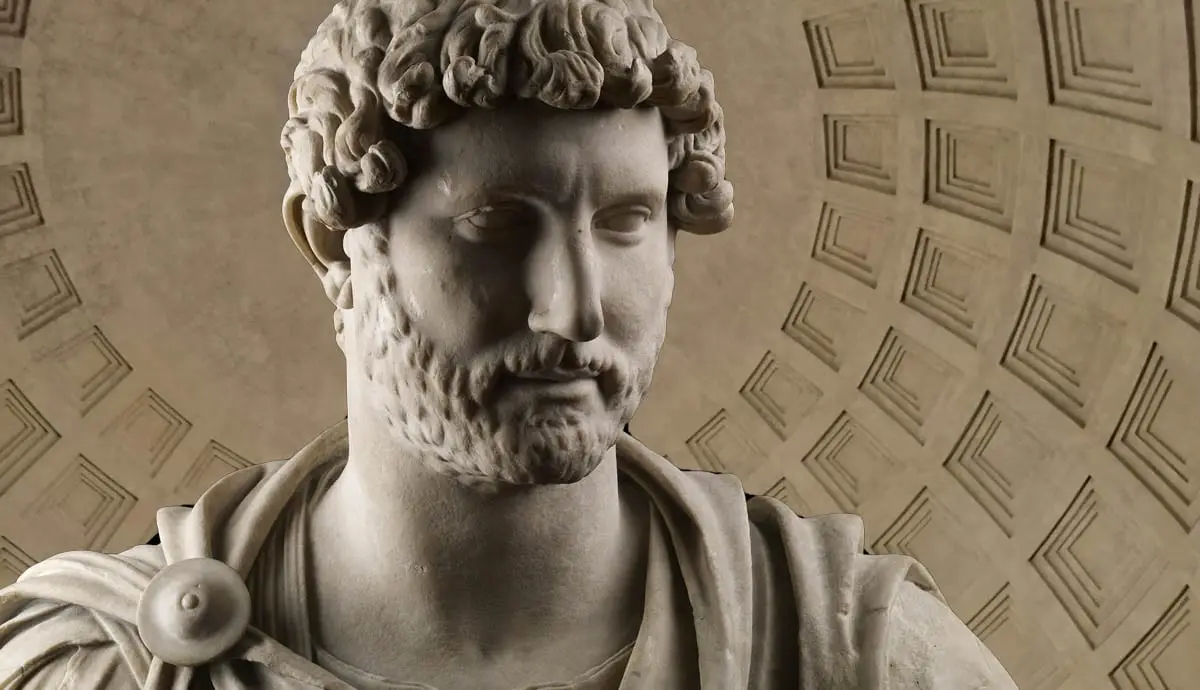Hadrian was born in the year 76 AD in Italica, a Roman settlement in Hispania (modern-day Spain), to a well-established Roman family. His father, Publius Aelius Hadrianus Afer, was a senator, and his mother, Domitia Paulina, came from a distinguished Hispano-Roman family. From an early age, Hadrian showed promise, receiving a comprehensive education in literature, philosophy, and military tactics.
Hadrian's rise to power was not immediate. He entered politics under Emperor Trajan, his distant cousin, and quickly proved himself as a capable administrator and military leader. Trajan's adoption of Hadrian as his heir paved the way for his ascension to the throne in 117 AD, following Trajan's death.
As the Emperor, Hadrian implemented a series of policies and reforms that left a lasting impact on the Roman Empire. He is perhaps best known for his extensive travels throughout the empire, a journey known as the "Hadrianic Tour." This allowed him to inspect and strengthen the borders, as well as to promote cultural exchange and integration.
Facts about Hadrian abound, reflecting his multifaceted character. He was not only a skilled military strategist but also a lover of the arts and architecture. Hadrian's Villa, located near Tivoli, Italy, stands as a testament to his architectural vision, featuring an eclectic mix of architectural styles from across the empire.
Hadrian died in 138 AD, after a reign of 21 years. His death marked the end of a transformative era in Roman history. His successor, Antoninus Pius, continued many of his policies, cementing Hadrian's legacy as one of the most influential emperors of the Roman Empire.
What is Hadrian known for? Beyond his architectural endeavors and military campaigns, Hadrian is renowned for his efforts to codify Roman law and establish a clear line of succession. His codification of Roman law, known as the "Codex Justinianus," laid the groundwork for legal systems throughout Europe for centuries to come.
Hadrian of Rome is often remembered for his tolerance and respect for diverse cultures within the empire. Unlike some of his predecessors, Hadrian sought to maintain stability through diplomacy rather than conquest, earning him praise as a benevolent ruler.
Why was Hadrian a good emperor? His reign is celebrated for its relative peace and prosperity, known as the Pax Romana. Hadrian's emphasis on diplomacy and infrastructure projects contributed to the stability of the empire, fostering economic growth and cultural exchange.
Hadrian's family tree reflects his noble lineage and connections within the Roman elite. He married Vibia Sabina, although their relationship was reportedly strained. Despite not having any biological children, Hadrian adopted two sons, Lucius Aelius and Antoninus Pius, the latter of whom succeeded him as emperor.
Hadrian left an indelible mark on the Roman Empire through his leadership, policies, and cultural contributions. His legacy as a statesman, military leader, and patron of the arts continues to be studied and celebrated to this day, making him one of the most significant figures in ancient history.
Here are some fascinating facts about Hadrian:
- Architectural Legacy: Hadrian was not only a skilled ruler but also an accomplished architect. His Villa Adriana, located near Tivoli, Italy, is a sprawling complex that showcases his architectural vision, blending various styles from across the Roman Empire.
- Hadrian's Wall: One of Hadrian's most famous construction projects is Hadrian's Wall, a defensive fortification in northern Britain. Stretching over 73 miles (117 kilometers), the wall marked the northernmost boundary of the Roman Empire and served as a symbol of Roman power and authority.
- Cultural Patronage: Hadrian was a great patron of the arts and culture. He sponsored the construction of numerous temples, theaters, and other public buildings throughout the empire, promoting cultural exchange and integration among diverse peoples.
- The Hadrianic Tour: Unlike many of his predecessors, Hadrian traveled extensively throughout the Roman Empire, visiting nearly every province. This "Hadrianic Tour" allowed him to inspect the borders, reinforce defenses, and promote unity among the diverse regions of the empire.
- Codification of Roman Law: Hadrian played a crucial role in codifying Roman law, which formed the basis of legal systems throughout Europe for centuries. His codification efforts, known as the "Codex Justinianus," helped to standardize legal practices and ensure justice and fairness for all citizens.
- Military Reforms: As a military leader, Hadrian implemented several reforms aimed at strengthening the Roman army and securing the empire's borders. He focused on training and discipline, reorganizing the military command structure, and fortifying key strategic points along the frontiers.
- Personal Life: Despite his political and military achievements, Hadrian's personal life was marked by tragedy. He had a tumultuous relationship with his wife, Vibia Sabina, and suffered the loss of several loved ones, including his close friend Antinous, whose death deeply affected him.
- Succession Planning: Concerned with the stability of the empire, Hadrian carefully planned his succession. He adopted two heirs, Lucius Aelius and Antoninus Pius, ensuring a smooth transition of power upon his death.




